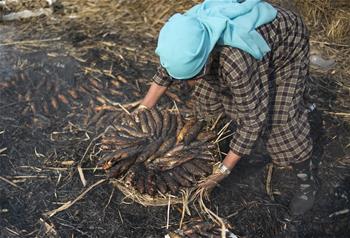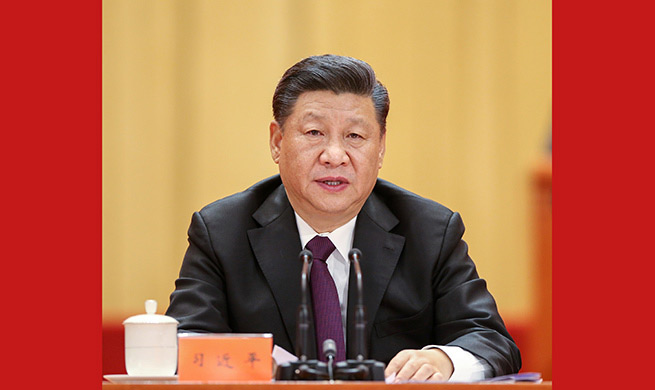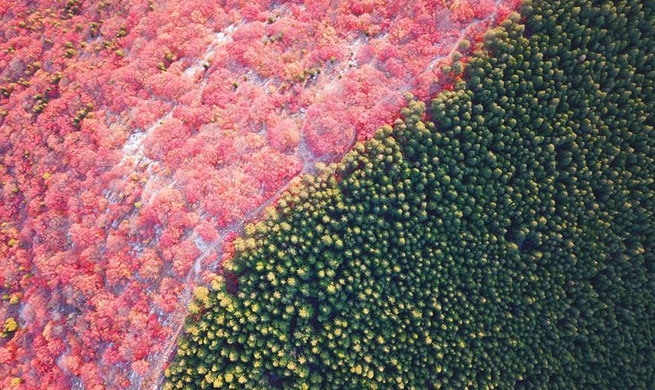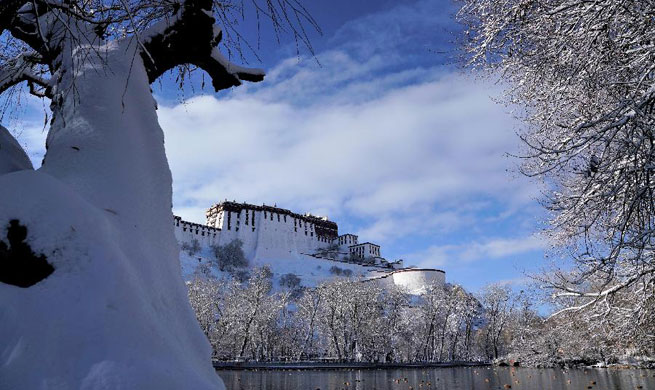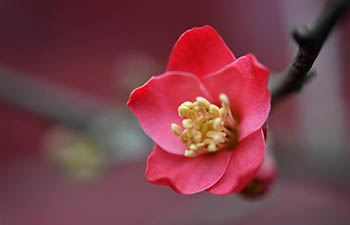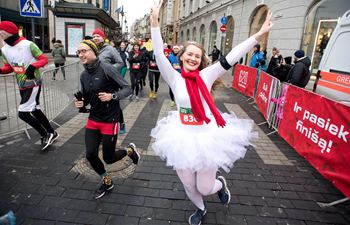by Raul Menchaca
HAVANA, Dec. 19 (Xinhua) -- A tiny bronze statue of a female figure keeps watch over Cuba's capital Havana from atop a local landmark.
La Giraldilla, as she is known, is a weather vane that for more than three and a half centuries has overlooked Havana's harbor from the top of the Castillo de la Real Fuerza (Castle of the Royal Force) in the city's Old Quarter.
Amid celebrations marking the 499th anniversary of Havana's founding on Nov. 16, 1519, residents and historians have turned their attention to the diminutive sentinel that tirelessly stands guard above the watchtower of the fort-turned-museum.
According to legend, sculptor Geronimo Martinez Pinzon created the statue between 1630 and 1634 in the image of Dona Ines de Bobadilla, wife of Hernando de Soto, then Spain's appointed governor of Cuba.
De Soto was obsessed with finding the mythical Fountain of Youth, although his official mission was to explore and conquer the region known today as the southern United States. In 1540, he became the first European to discover the Mississippi River.
Dona Ines, the story goes, climbed to the watchtower every day, looking out to the horizon as she waited for her husband to return from his travels.
It was there that she received news of her husband's death in 1542, dying shortly thereafter from a broken heart.
"That's just a legend," said Antonio Quevedo, a historian and director of the museum of the Castle of the Royal Force.
The museum houses the original statue of a woman in a defiant pose, one hand on hip, the other grasping a scepter-like staff, and dressed in Spanish Renaissance style, with a medallion on her chest bearing the name of the sculptor and a crown on her head.
Standing just over a meter, she has the Cross of Calatrava on one arm, indicating the order issued by Juan Vitrian de Viamonte, the governor who commissioned the weather vane and named it in honor of La Giralda, the bell tower of the Cathedral of Seville.
The statue was torn from its base by a strong hurricane in 1926 and partly damaged.
"In 1960, when the National Monuments Commission was created, they decided to bring La Giraldilla down for greater safekeeping," said Quevedo.
Cuban sculptor Hipolito Nodarse made a replica that still stands atop the tower today, while the original embarked on a long journey.
"It was kept for many years at the Museum of Fine Arts, later at the Museum of the City, and brought here in 2008, when we opened this project, where the most important element is the fortress itself. And it was placed here to preside over the entrance," said Quevedo.
At present, the statue stands at the museum's entrance, flanked by a bell also made by Pinzon, in 1644, for the Convent of Santa Clara de Asis, Cuba's first nunnery.
Havana has other signature landmarks, but La Giraldilla has become the city's favorite iconic symbol.
Cuban rum Havana Club has an image of La Giraldilla on its label, and she also adorns the uniforms of baseball club Industriales, which represents the capital city and is one of the most followed in the national series.
From atop the fort, La Giraldilla continues to signal the direction of the winds for seagoing vessels, but above all she continues to represent a city that cherishes its oldest symbol.



